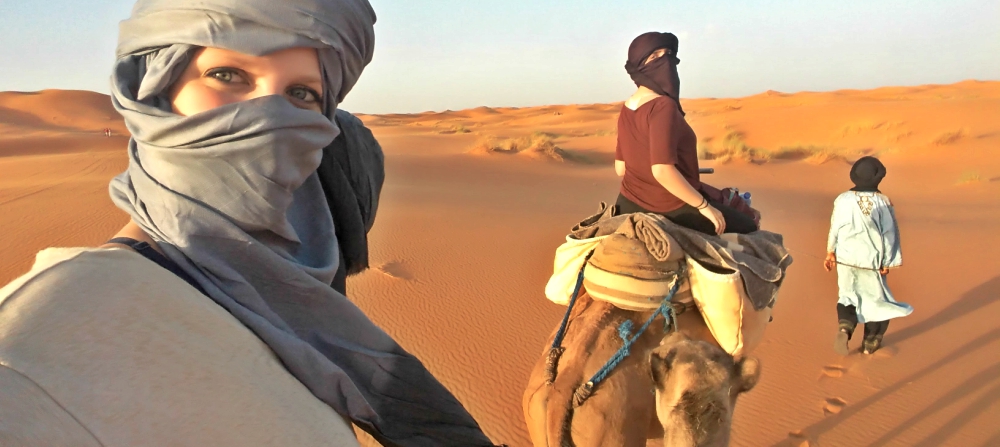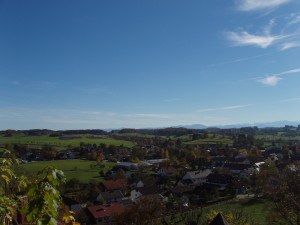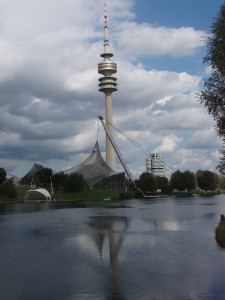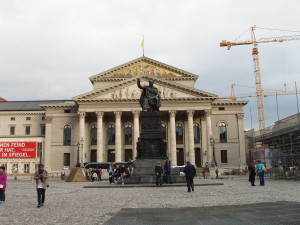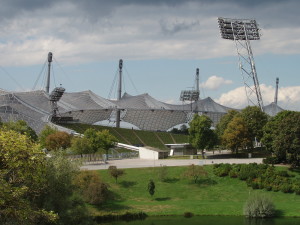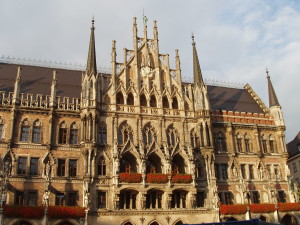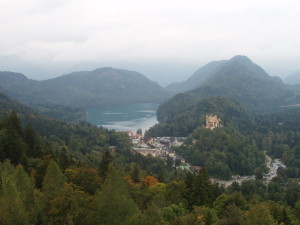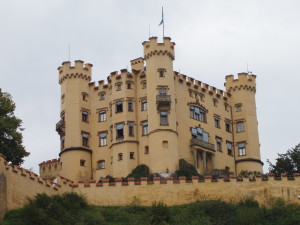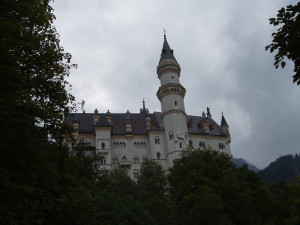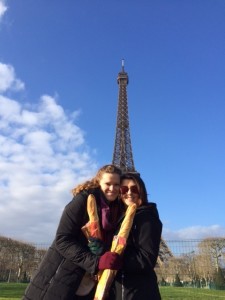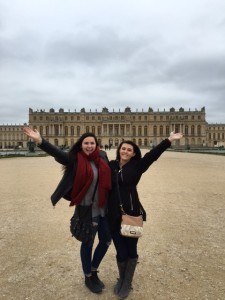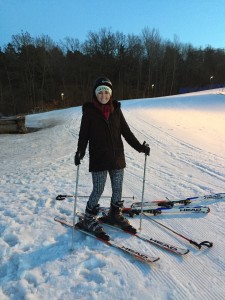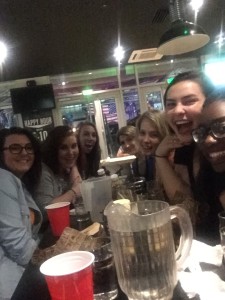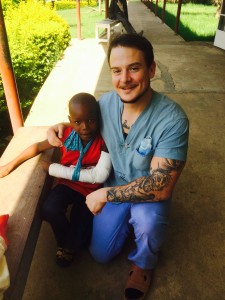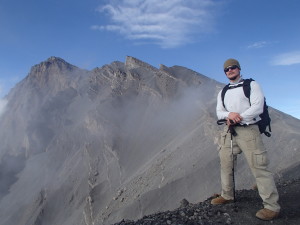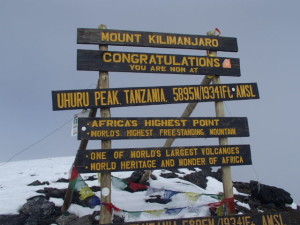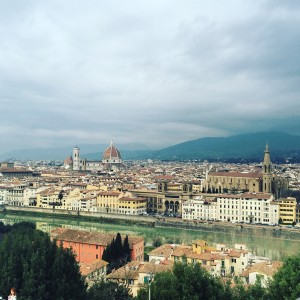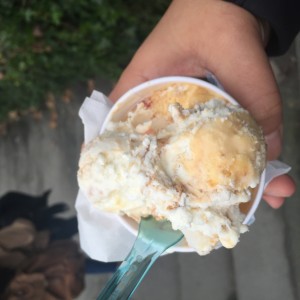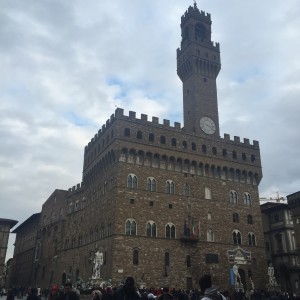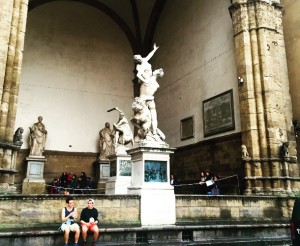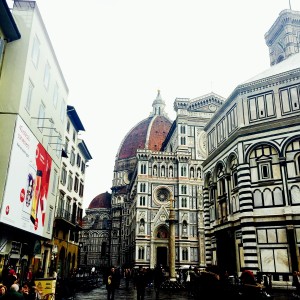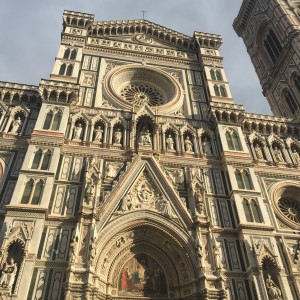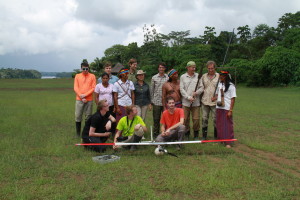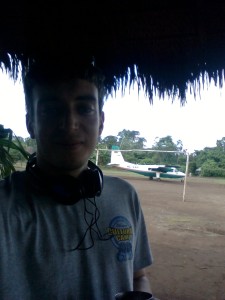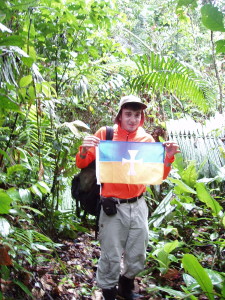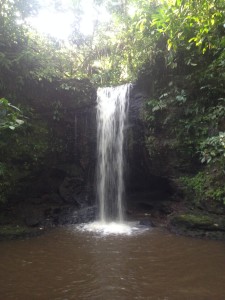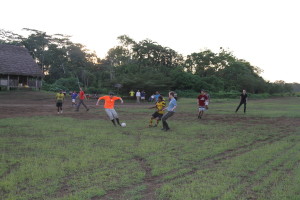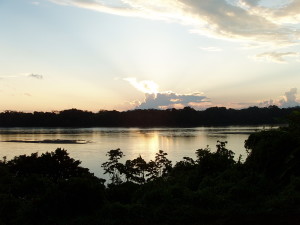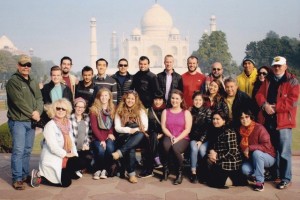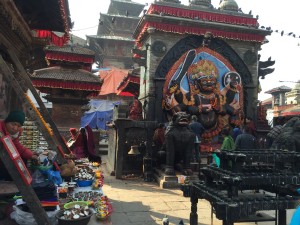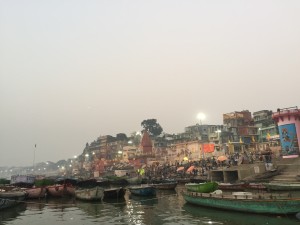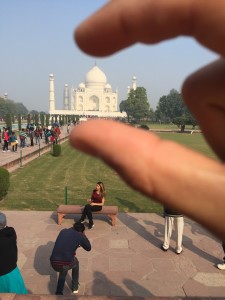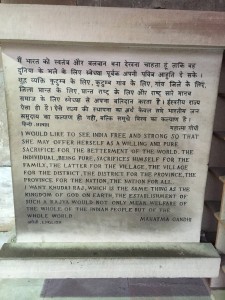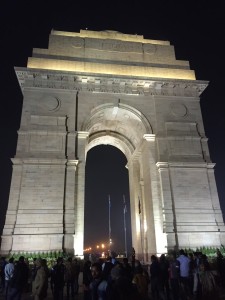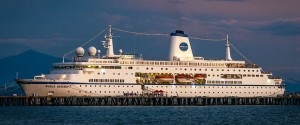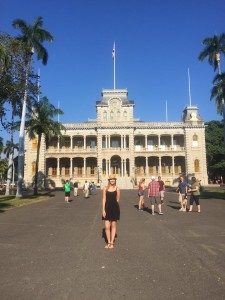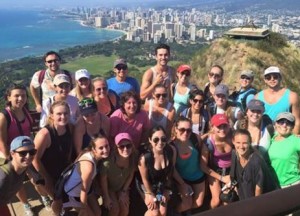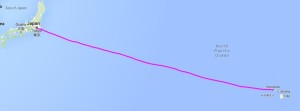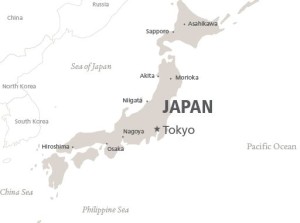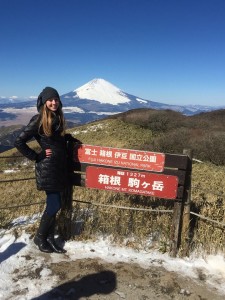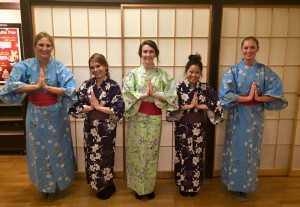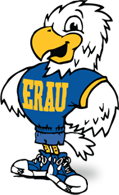Morocco has abundance of diverse landscapes; from the crashing waves of the coast, jagged mountains in its center, to the mysteries of the desert in the east. Two other AMIDEAST students and I decided to check visiting the Sahara Desert off the bucket list and took a two hour train ride followed by a ten hour overnight bus to the far east town of Merzouga. Upon arrival, we were greeted by our host at the local Riad (a Moroccan styled hotel) where we rested before going on our two day camel trek. Our guide, Youssef, greeted us in a bright, sapphire colored gown and dark headscarf. Each of us took turns getting on our seated camel, and holding on for dear life as not to get flung off when it stood up. We departing in the early evening as the beating sun set and the temperature cooled. After riding our camels for an hour and a half, we arrived to an abandoned nomad village. Under a fire and the light of a small solar lamp, our guide made fresh Tajine, a vegetable and meat stew. After the meal, we arranged blankets outside one of the crumbling clay houses and slept under the stars. The silence of the desert and brightness of the stars was unlike any other. The land and the sky harmonized and formed a feeling of peace.
In the morning, we trekked to a nomad’s house in the black desert, a part of the Sahara characterized by coal colored rocks and sand. As we continued our journey, we could see the plateaued mountains of Algeria along the horizon. We arrived at our lunch spot where we would spend majority of the day under a collection of trees to wait out the heat before continuing our journey. We were served a fresh salad and a nomad prepared “Pizza.” He stretched out the dough, placed a mixture of vegetables and spice, rolled it into a calzone. He then put out a brush fire he lit previously, and underneath revealed a mosaic of black rocks that were heated from the flame. He placed the pizza on top of the rocks and covered it with a metal tin, and let it cook for 30 minutes. The other students and I paid close attention to the traditional cooking techniques, joking how it would be our new party trick at the next barbeque we attend back home. As the sunlight became dim, we trekked another hour to our final destination in the desert, a collection of caravan tents. We met several groups of people taking part in a similar excursion as us, and we all shared a delicious meal together. After dinner, all the guides collected together with drums and began to play while humming and chanting in Tamazight, the language of the Amazigh (or Berber) people. The Amazigh are an ethnic group indigenous to North Africa and they have a large presence in Morocco. Their language differs from Arabic in letters and over thirty variations can be heard spoken in the MENA region. After the music and late night sand boarding, we returned the caravan where we once again set our beds under the stars. The night consisted shooting stars and the brisk bites of the freshly cooled air.
We woke up at the break of dawn and completed our trek back to Merzouga on the richly pigmented sands with the sunrise behind us. The journey to the Sahara was and will be one of the most memorable experiences I have ever had. It was incredible to spend a few days in the desolate and peaceful land and also learn more about the culture of the Amazigh people that inhabit the region.



